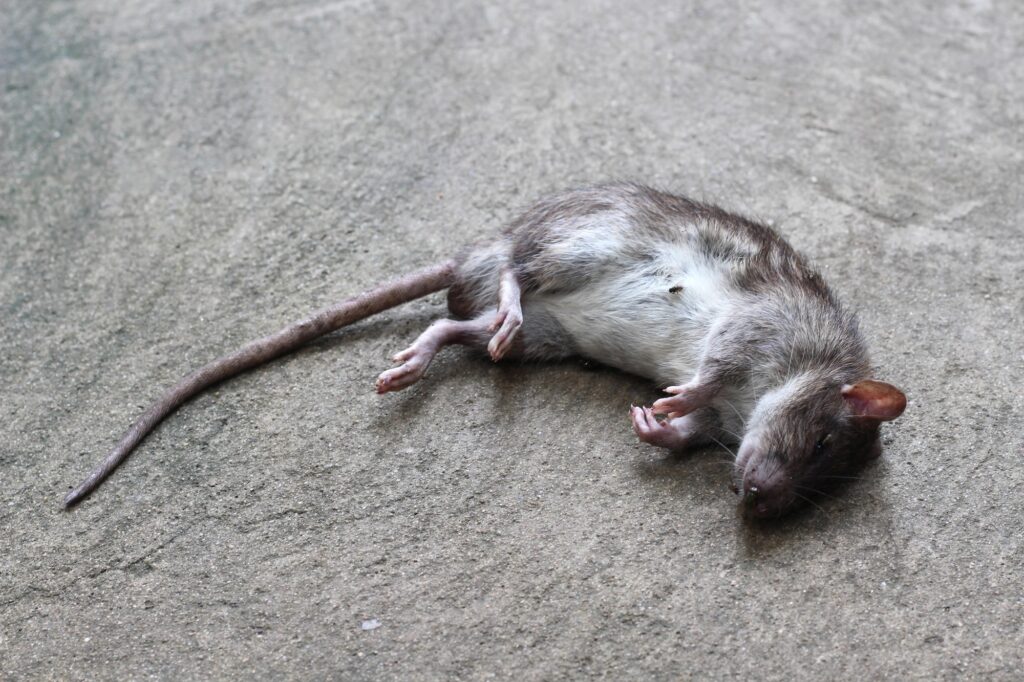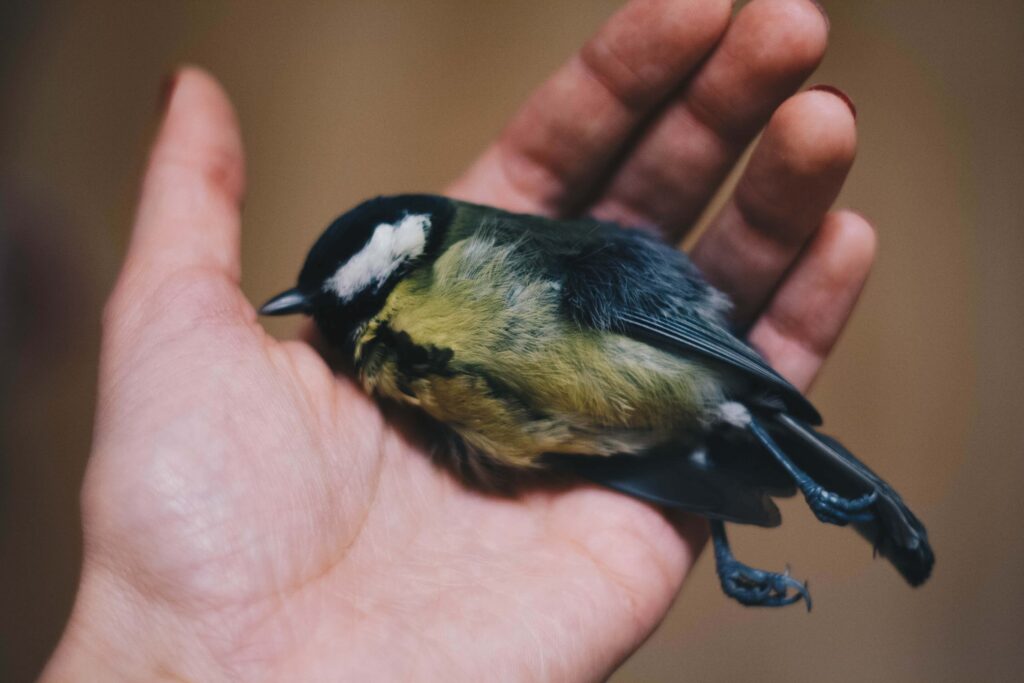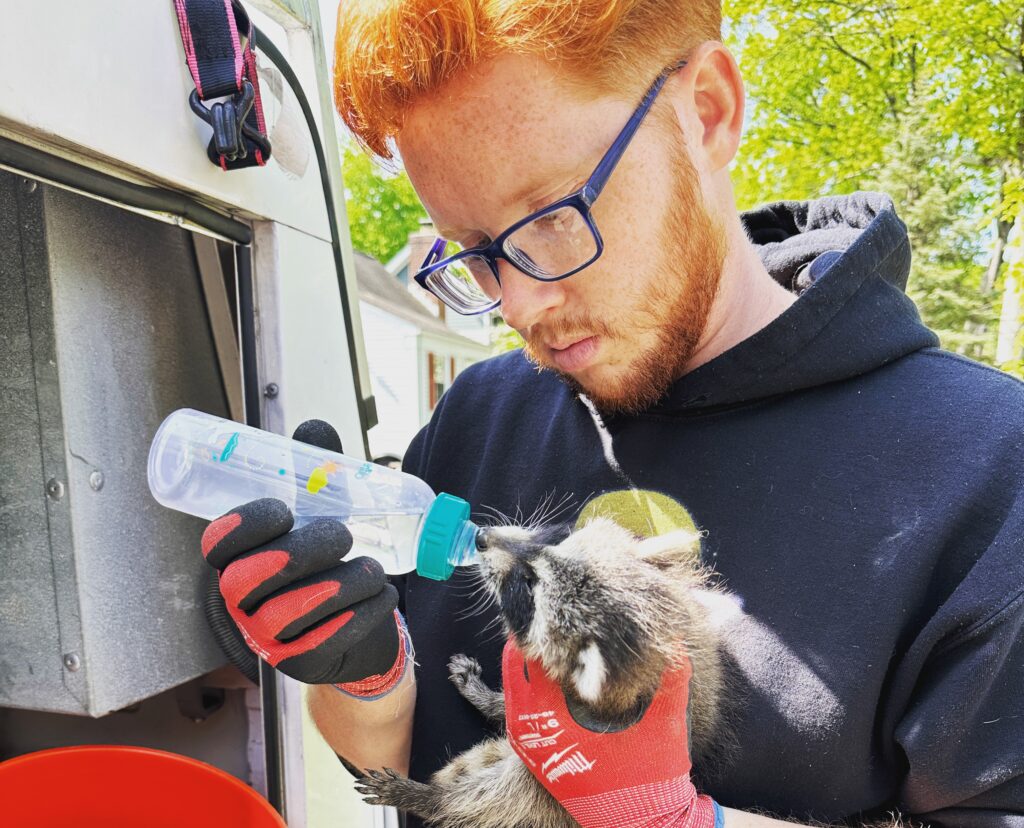In the quiet neighborhoods of New Jersey, an unforeseen and unsettling issue can disrupt the peaceful coexistence of residents – the presence of deceased animals. The need for prompt and efficient Dead Animal Removal in NJ has become increasingly crucial due to the various health, safety, and environmental concerns associated with the untimely demise of wildlife or pets. Whether it’s a small creature succumbing to natural causes or a larger animal meeting an unfortunate end on the road, the potential hazards posed by their remains cannot be ignored.
Living in proximity to nature, New Jersey residents often find themselves facing challenges related to dead animal removal. The sight and smell of a decomposing carcass not only create an unpleasant environment but also introduce health risks and attract unwanted pests. As such, understanding the importance of quick and efficient solutions for Dead Animal Removal in NJ is essential for maintaining the well-being of communities and preserving the local environment.
In this article, we will delve into the critical aspects of emergency dead animal removal, examining the challenges faced, the need for professional services, and exploring the benefits of timely intervention. By shedding light on the intricacies of dead animal removal in New Jersey, we aim to empower residents with the knowledge and awareness needed to ensure a swift and effective response to this often-overlooked issue.
Key Takeaways
- Quick action in Dead Animal Removal NJ is vital to minimize health risks, prevent environmental contamination, and ensure community safety.
- Hiring trained services ensures safe and efficient removal, compliance with regulations, and prevention of property damage.
- Responsible waste disposal, pet safety practices, and community education can collectively reduce the need for emergency removal.
- Decomposing carcasses pose risks to soil and water; therefore, proper disposal methods are essential for preserving local ecosystems.
- Residents play a pivotal role in maintaining a clean and safe environment, fostering community well-being and minimizing the impact of deceased animals.
The Need for Emergency Dead Animal Removal
The need for emergency Dead Animal Removal in NJ arises from the potential health and safety hazards that come with the presence of deceased animals in residential and public spaces. When an animal passes away, whether due to natural causes or accidents, the risk of disease transmission becomes a pressing concern. Carcasses serve as breeding grounds for bacteria and pathogens, creating an environment conducive to the spread of infections that can affect both humans and other animals.
Beyond the health implications, the decomposition process of dead animals attracts scavengers and pests, exacerbating the problem. In New Jersey, where wildlife and domestic pets coexist with communities, the risks are particularly pronounced. Prompt action becomes imperative to prevent the intrusion of rodents and insects that may carry diseases or compromise the structural integrity of homes.
Additionally, the environmental impact of decomposing carcasses cannot be understated. The release of noxious gases and fluids from decaying animals can contaminate soil and water sources, posing further risks to ecosystems. Therefore, understanding the need for emergency Dead Animal Removal in NJ goes beyond mere aesthetics; it is a vital step in safeguarding public health, maintaining a harmonious living environment, and preserving the delicate ecological balance within the state.
Challenges in Dead Animal Removal
Navigating the challenges associated with Dead Animal Removal in NJ involves grappling with various factors that can complicate the process. One significant hurdle lies in the identification of the deceased animal. In a state with diverse wildlife and pets, determining the species and size of the animal can be challenging, impacting the selection of appropriate removal methods. Moreover, the locations where dead animals are commonly found, such as roadways, attics, or crawl spaces, often require different approaches for safe extraction.
Legal considerations and regulations in New Jersey add another layer of complexity to dead animal removal. Compliance with local ordinances, environmental regulations, and ethical practices is essential but may vary depending on the situation and location. This legal landscape can be intricate, necessitating a nuanced understanding to ensure that the removal process aligns with the state’s guidelines.
Moreover, the emotional toll on residents discovering a deceased pet or encountering wildlife casualties near their homes can pose additional challenges. Addressing these sensitivities and providing empathetic dead animal removal services in NJ becomes crucial to navigating these emotional complexities. In essence, the challenges in dead animal removal extend beyond the physical aspects, requiring a comprehensive and adaptable approach to ensure effective and considerate solutions for the residents of New Jersey.
Quick and Efficient Solutions in NJ
Quick and efficient solutions for Dead Animal Removal in NJ are paramount to address the urgency and potential hazards associated with deceased wildlife or pets. Timeliness is of the essence, not only to minimize health risks but also to prevent further environmental contamination. In a state like New Jersey, where the close proximity of communities and wildlife is common, rapid response becomes a shared responsibility to maintain the overall well-being of the area.
Professional dead animal removal services in NJ offer a reliable and effective solution. Trained experts equipped with the necessary tools and knowledge can ensure the swift identification, containment, and removal of the deceased animal. These professionals adhere to safety and environmental standards, mitigating risks associated with the removal process.
Utilizing technology in dead animal removal processes has become increasingly prevalent. From advanced tracking methods to environmentally friendly disposal techniques, technology plays a pivotal role in enhancing the speed and efficiency of removal services. Such innovations contribute not only to the quick resolution of the immediate problem but also to the overall improvement of dead animal removal practices in New Jersey, fostering a safer and healthier living environment for residents.

Benefits of Hiring Professional Services
Engaging professional services for Dead Animal Removal in NJ brings forth a multitude of benefits that extend beyond the immediate removal of a deceased animal. One primary advantage lies in ensuring safe and proper disposal. Trained professionals possess the expertise to handle carcasses safely, minimizing the risk of contamination and potential harm to the environment.
Moreover, hiring professionals mitigates the potential for damage to property during the removal process. Accidents or mishandling during DIY removal attempts can lead to structural damage or the spread of contaminants, exacerbating the initial problem. Professional services, on the other hand, are equipped with the necessary tools and techniques to conduct removal efficiently without causing harm to the surrounding areas.
Compliance with local regulations and ethical practices is another crucial benefit. Professional Dead Animal Removal in NJ services are well-versed in the legal aspects of handling deceased animals. This ensures that the removal process aligns with local ordinances and environmental regulations, preventing any legal complications for the property owner.
In essence, opting for professional services guarantees a comprehensive and responsible approach to dead animal removal, providing peace of mind to residents while contributing to the overall safety and cleanliness of the community in New Jersey.
How Dead Animal Removal NJ Services Operate
Dead Animal Removal in NJ services operate through a systematic and efficient process designed to address the unique challenges associated with deceased wildlife or pets. The initial phase involves an assessment of the situation, where trained professionals identify the type and size of the deceased animal. This step is crucial in determining the appropriate removal methods, considering factors such as location and potential environmental impact.
Once the assessment is complete, safe removal and containment procedures are implemented. Trained experts utilize specialized tools and equipment to handle the carcass securely, minimizing the risk of further contamination or damage. The containment process ensures that any fluids or debris associated with the deceased animal are properly managed to prevent environmental hazards.
Disposal methods are a key component of Dead Animal Removal in NJ services. Professionals follow environmentally friendly practices, adhering to local regulations and ethical standards. This step ensures that the disposal process aligns with the state’s guidelines, contributing to the overall well-being of the community and the preservation of the local environment.
Prevention and Tips for Residents
Preventing the need for Dead Animal Removal in NJ involves a combination of education, responsible practices, and vigilance among residents. One key aspect is the responsible disposal of waste. Ensuring that garbage bins are securely closed and trash bags are intact can deter scavengers, reducing the likelihood of attracting wildlife that may meet an unfortunate end on roads or within residential areas.
Furthermore, implementing pet safety measures is crucial. Pet owners should be mindful of their animals’ movements, particularly in areas where wildlife is prevalent. Keeping pets on leashes or within secure boundaries can prevent them from becoming victims of accidents or contributing to the deceased animal issue.
Residents can also play a role in community education, sharing information about the importance of responsible waste disposal and pet safety. Fostering a sense of collective responsibility within neighborhoods can lead to a proactive approach, reducing the occurrences that necessitate emergency Dead Animal Removal in NJ.
FAQs
Can I remove a dead animal myself?
It’s advisable to hire professionals due to health risks and legal considerations.
Are there specific seasons when dead animal removal is more common?
Spring and summer often see an increase due to mating and migration patterns.
How do professionals dispose of deceased animals?
Professionals use environmentally friendly methods in compliance with regulations.
What types of animals do dead animal removal services handle?
Services typically handle a range of animals, including wildlife and domestic pets.
What measures can I take to prevent dead animals on my property?
Secure trash bins, pet safety practices, and community education can help.
Conclusion
In conclusion, recognizing the significance of prompt and professional Dead Animal Removal in NJ is paramount for safeguarding public health, preserving the environment, and maintaining the overall well-being of communities. The challenges posed by deceased animals necessitate a swift and efficient response, best handled by trained experts. By prioritizing prevention measures, residents contribute to a cleaner and safer living environment, reducing the occurrences that demand emergency removal services. As we navigate the delicate balance between urban living and wildlife, the responsibility falls on each individual to act responsibly.
For immediate assistance and expert dead animal removal services, we urge you to contact Kritter Catchers at (973) 747-5455. Their trained professionals are equipped to handle the unique challenges posed by deceased animals in New Jersey, ensuring a quick, safe, and environmentally responsible resolution to the issue. Remember, a timely response not only addresses the immediate problem but also contributes to the overall harmony and cleanliness of our communities. Call Kritter Catchers now to experience efficient and reliable dead animal removal services.


